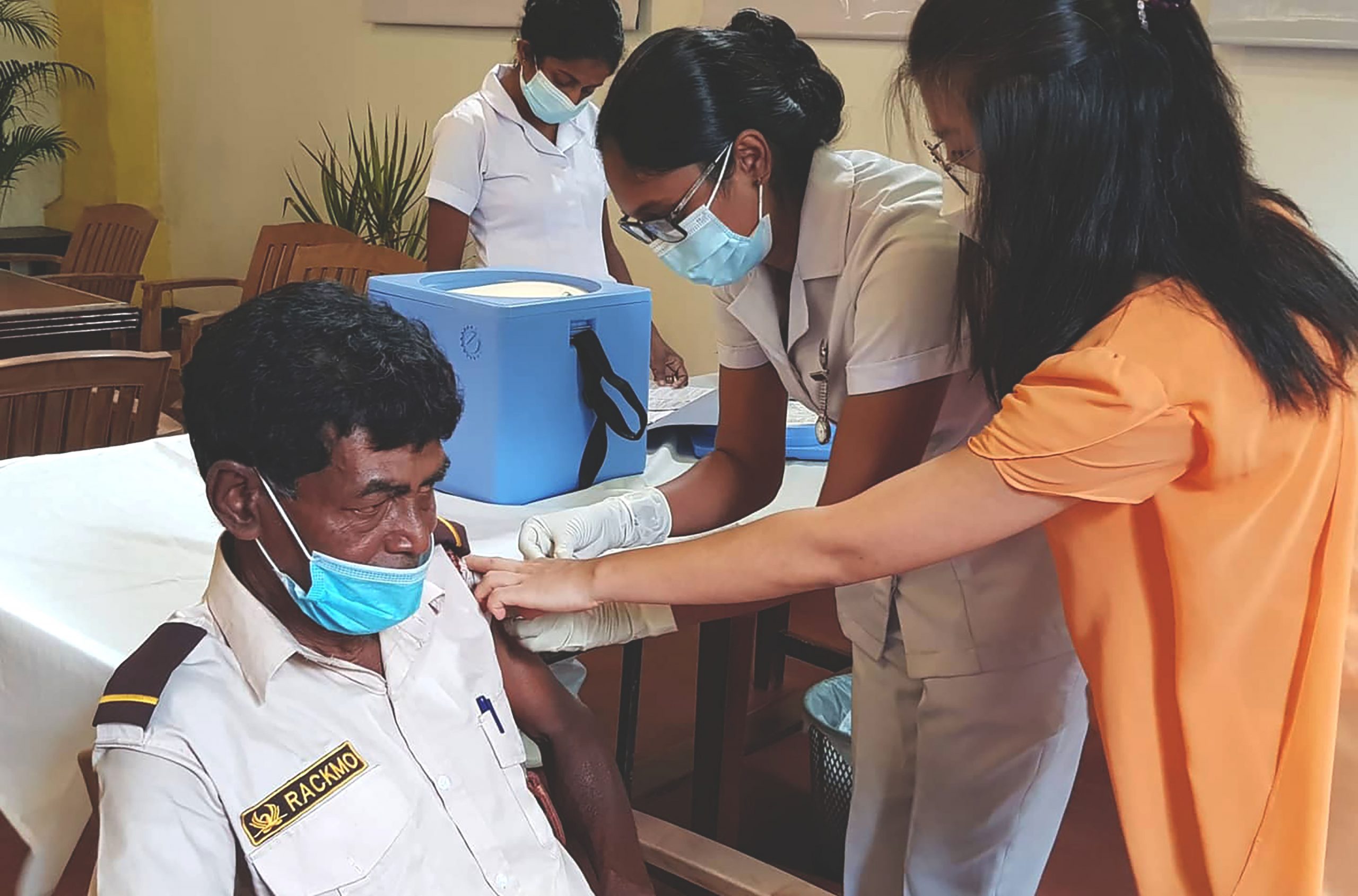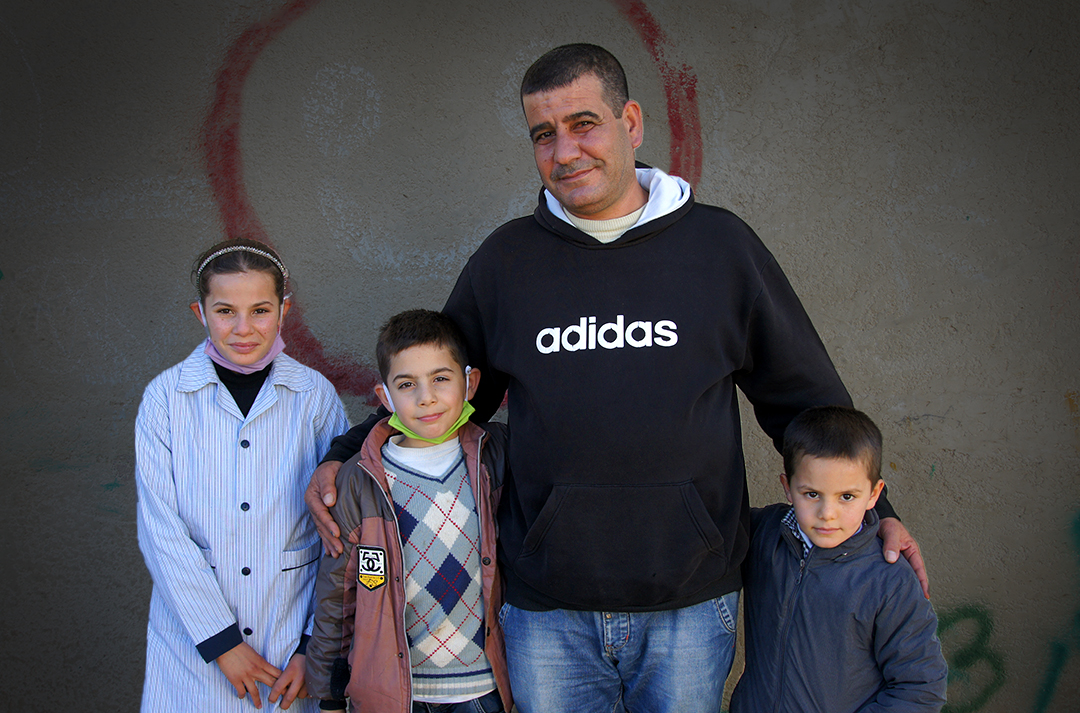‘Why have you forsaken me?’
Lamenting Coronavirus
The Coronavirus pandemic forced people across the world to face the brutality of pain and suffering – many for the first time. What has being unable to hug our loved ones or sit at the bedside of dying friends taught us about lament?
The first time the invisible power of grief struck me was when I was six years old, having just received the news of my grandfather’s death. I was apart from the safety of home and family, with little understanding of death, whilst his passing was tidily dealt with in a hospital miles away. What have you learnt by the age of six on how to grieve? I quietly tucked myself between a drawn curtain and a window running with condensation against the cold winter air outside. And sobbed. I never told the grown-ups.
Years later, I worked in a mission hospital in Zambia. When the first death occurred since my arrival, the relatives of the deceased threw themselves onto the floor, wailing in anguish and sharing their loss with all who could hear. I was shocked. I tried to tidy up the dramatic scene in front of me and bring some screens around the bed as I had been taught. ‘Give space and dignity for the bereaved’. Keep it hidden. Remain calm.
How could we be ready as a nation and a Church for the harsh loss of life, livelihoods, freedoms, choices and identity that the Covid-19 pandemic would wreak? What preparation might have been overlooked in our spiritual resilience, our theology of suffering and risk, and our ability to respond as faith-filled believers?

We were not ready. Few of us had wrestled with these questions before and they were not always the ones who had a voice. Wisdom, experience and resilience lay behind the doors of those shielded due to age, disability, long-term illness and life-limiting conditions. These members of our community continue to model a faith, hope and perseverance that many of us don’t understand, perhaps until now.

Let’s be really honest. Covid-19 has made us feel out of control and question if God is in control. And to make matters worse, we couldn’t necessarily ‘buy’ health and protection as the lie of consumerism says. Matthew Vaughan suggests that we have been blinded by other influences such as humanism, even as Christians, whereby we believe we can create the perfect world and that progress is achieved by us. We no longer primarily serve God but our own desires.
We have come to believe that if we insure against loss, immunise ourselves against pain, ignore the broken and throw it away, then we will be alright. That is not the gospel of the suffering servant but the ‘health and safety gospel’.
As a Church, we have to face Covid-19 on our knees. We need to look to Scripture once again and see the biblical narrative whereby God remains sovereign in a world full of folly, confusion, sin and man-made crisis. Whereby the rich and powerful abuse the vulnerability of the weak and Christ came to save us all. Suffering can draw us to himself. Our persecuted brothers and sisters will tell us that. And they remind us that the Church can grow in these times of crisis. Not all, but many. And there is testimony to that time and time again in this season.

So, what of our response? We can learn from the lives of Job and his comforters who did so well to support him for seven days. They were silent. Then they spoke with so many words! They spent chapters asking the questions of what and why Job was suffering until God himself spoke (Job 38: 8-10) and reminded them of his power, authority and character.
How many psalms do we know or sing as choruses? They will probably be ones of great rejoicing! But in the uncertainty of an invisible virus, psalms of lament help give voice to the pain that we feel. Do we still hide from others or put a screen around the pain, as I did in Zambia as a nurse? Let us do that no longer. Cry out. Admit your despair and your sense of hopelessness and helplessness. For Christ himself did that on the cross. ‘My God, my God, why have your forsaken me?’ A third of the Psalms are laments, and yet they are so often brushed over. Let us use the Psalms and Lamentations to help us journey through this season as God’s people.
Let us remember the tenderness of love in pain and suffering. The gentle touch, even with a gloved hand, of a carer, or some baked goods left on a neighbour’s doorstep. As Jesus suffered on the cross, he did not forget his mum. And I write ‘mum’ intentionally. The young girl who suffered judgement as a pregnant teenager, about whom it was prophesied that ‘a sword would pierce your heart also’, now stood below her son’s nail-torn feet on a rubbish heap watching him die. She expected to be condemned as ‘rubbish’ herself as a mother of an executed criminal and Jesus knew that. As he struggled for breath, he gave her another son, ‘Woman, here is your son.’ Is there a way that our suffering and pain can be transformative for others as we continue to love?

So, how do we mourn as we look back over these months where we could not attend memorials, leave flowers or visit the sick and dying?
If you are bereaved, intentionally make space for your grieving. Remember that not all of us will be grieving a person. Loss of livelihood or hope and dreams affect us deeply. Consider what you have lost and give yourself time to tell God how hard that is. Give yourself the time and space as Jesus did when he went up the mountain on hearing the news that his cousin, John, had died. One of my closest friends died of cancer during the lockdown and missing her is not a reality whilst I cannot see her empty chair or cuddle her heartbroken children. Don’t let a pattern of loss emerge that buries reality. Ask God to step in and help you feel and grow through the pain.

Don’t place your own pain or stories of bereavement onto others who grieve. We each have our own journey through lament and pain, and we are better to speak less and just be. Provide food, be practical and make sure you keep in touch. And as the months pass, keep talking about that person or part of life that changed so radically as a result of Covid-19. Listening is the greatest gift as a journey mate through pain.
Finally, share your suffering with your neighbours so that they meet Jesus in you. That might sound strange, but when God’s people are honest in their pain but still cling on to hope and faith – that is the greatest bridge to the gospel. People come to Jesus when they need meaning in their chaos. Acknowledging suffering and sharing lament is the best missional response the UK Church has to give to our communities and nation right now.
Words: Emma Dipper
Emma is Partnerships Developer and Lecturer in the Theology of Suffering and Persecution at All Nations Christian College. She wrote this article on suffering and lament for Mission Catalyst, BMS’ magazine for thinking Christians.

Tickets for Catalyst Lite are on sale, now!
Catalyst Live 2020 is coming – and it’s more accessible than ever! Lite in length but mighty in stature, we’ll be bringing some of the world’s leading theologians and Christian entertainers to your front room for one unforgettable Friday evening. Stanley Hauerwas – considered by many to be the world’s most influential living theologian – will be leading the lineup, joined by the incredible Helen Paynter, Anthony Reddie, Makoto Fujimura and Harry and Chris (with some comedy-rap-jazz to bring in your weekend with style). They’ll all be speaking LIVE, and we are so excited! When you hear the price, you will be too!
For just £5, get your ticket for Catalyst Lite today. Be challenged. Be entertained. And embark further on the mission of the mind. You won’t want to miss this.
Everything has changed, but has it changed enough?

As we try to feel our way towards some kind of ‘new normal’ following the Coronavirus pandemic, have we taken the time to grieve and lament over what has been lost? Have we considered what needs to change about our economy, our health system and our Church?
The latest issue of Mission Catalyst features some fascinating articles about what we’ve learned and what we can still learn about our world through Covid-19. It’s out now! Take a look and if you like what you see, subscribe for free today!






